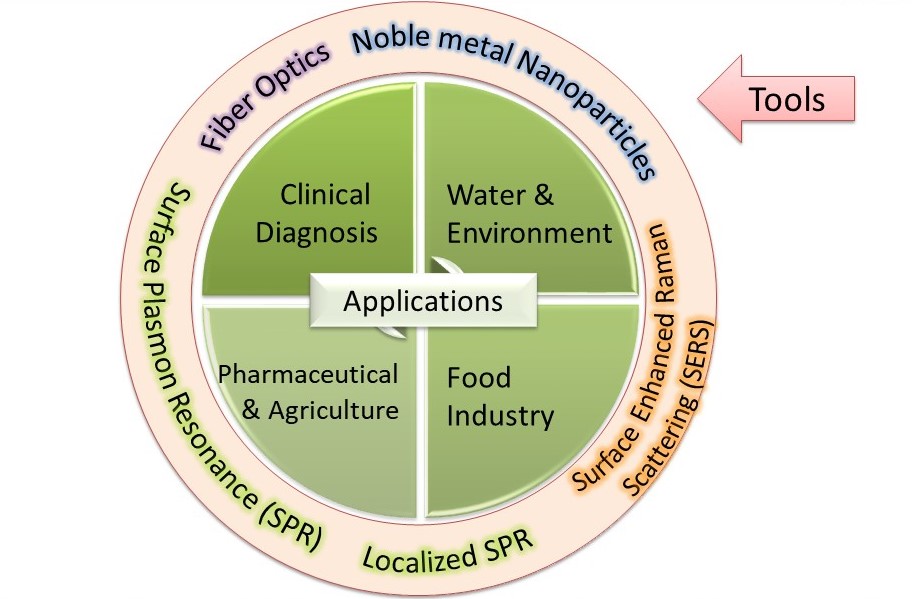Research Overview
The Biosensors Laboratory focuses on innovative technological solutions for Biological research and
Clinical diagnosis. We thrive to develop novel point-of-care (POC) device technologies detection of
biomolecules (eg. proteins, DNA and small molecules such as glycolipids) for early diagnosis of diseases.
We also aim to design high throughput screening (HTS) systems as an alternative to the conventional techniques
including enzyme-linked immunosorbant assay (ELISA) in health-care sector and surface plasmon resonance (SPR)
based systems for pharmaceutical sector. In addition, such tools are in high demand for environmental monitoring
(eg. pathogens, toxins, heavy metals etc.), food safety monitoring and agriculture.
The main objectives are to utilize advances in electronic instrumentation, fiber optics, photonics,
surface chemistry, biotechnology and nanotechnology to design and develop highly sensitive, field
deployable and cost effective chemical and biosensors. We make use of fiber optic probes and noble
metal nanoparticles to efficiently exploit localized SPR (LSPR), surface enhanced Raman scattering (SERS)
phenomena to realize highly efficient sensor technologies.
In this direction, U-bent fiber optic sensors made of glass (GOF) and plastic (POF) with high evanescent wave
absorbance and refractive index sensitivity are already developed in the biosensors laboratory.
Suitable surface modification strategies for functionally active fiber optic sensors are being established.
Novel scalable techniques for development of low cost plasmonic fiber optic probes for label-free and SERS
based sensing applications are under development. Dip-type fiber optic absorbance based plasmonic sandwich
biosensing schemes (similar to lateral flow assay or rapid chromatographic assays) are being designed and
developed for detection of analytes down to attomolar (aM) concentrations.
As an outcome we are in the process of establishing proof-of concepts for early diagnosis of infectious
diseases including Tuberculosis (TB), dengue and chikungunya. We are also developing low-cost array biosensors
for simultaneous detection of multiple pathogens in water. As a by-product of the research we have developed a
smart digital fiber optic refractometer for refractive index measurements, which can be widely deployed for food
quality monitoring includes beverages, oils and milk.







